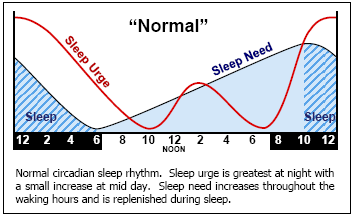454
 |
| Image credit: www. mrbarlow.wordpress.com |
The circadian clock is the clock that we were born with. As kids it helped us sleep and wake up on time and as adults it keeps us awake when we travel to different time zones. It is more efficient than any clock ever made by man for it keeps adjusting itself for every little change that we make and now we know how it works!
The circadian clock has been associated with
four genes, namely CLOCK, Period, Cryptochrome and BMAL1. It is the work of these genes (their respective proteins) that help us maintain our circadian rhythm. When a take a flight through different time zones, these genes take a while to adjust to new environs and this is why we experience ‘jet-lag’. But researchers Rui Ye and Aziz Sancar at the University of North Carolina, were able to show that CLOCK and BMAL1 were the most important genes needed to maintain our circadian rhythms. Now, that we know how the clock works, we can design drugs that can help us to set the clock quicker or later as we need and get into routine quickly.
While these drugs are still away from being available in the market, the very idea of popping pills to mitigate a jet-lag may seems too much dependence on pills doesn’t it? Well, research carried out on these genes has also revealed that an enzyme called XPA was found in high levels when the circadian clock was at its high or active state while it dipped in the afternoons, when the clock was also going through its low phase. Drugs designed to control circadian rhythms could be used to target cancerous cells as well and use other methods such as chemotherapy to triumph over cancer.




